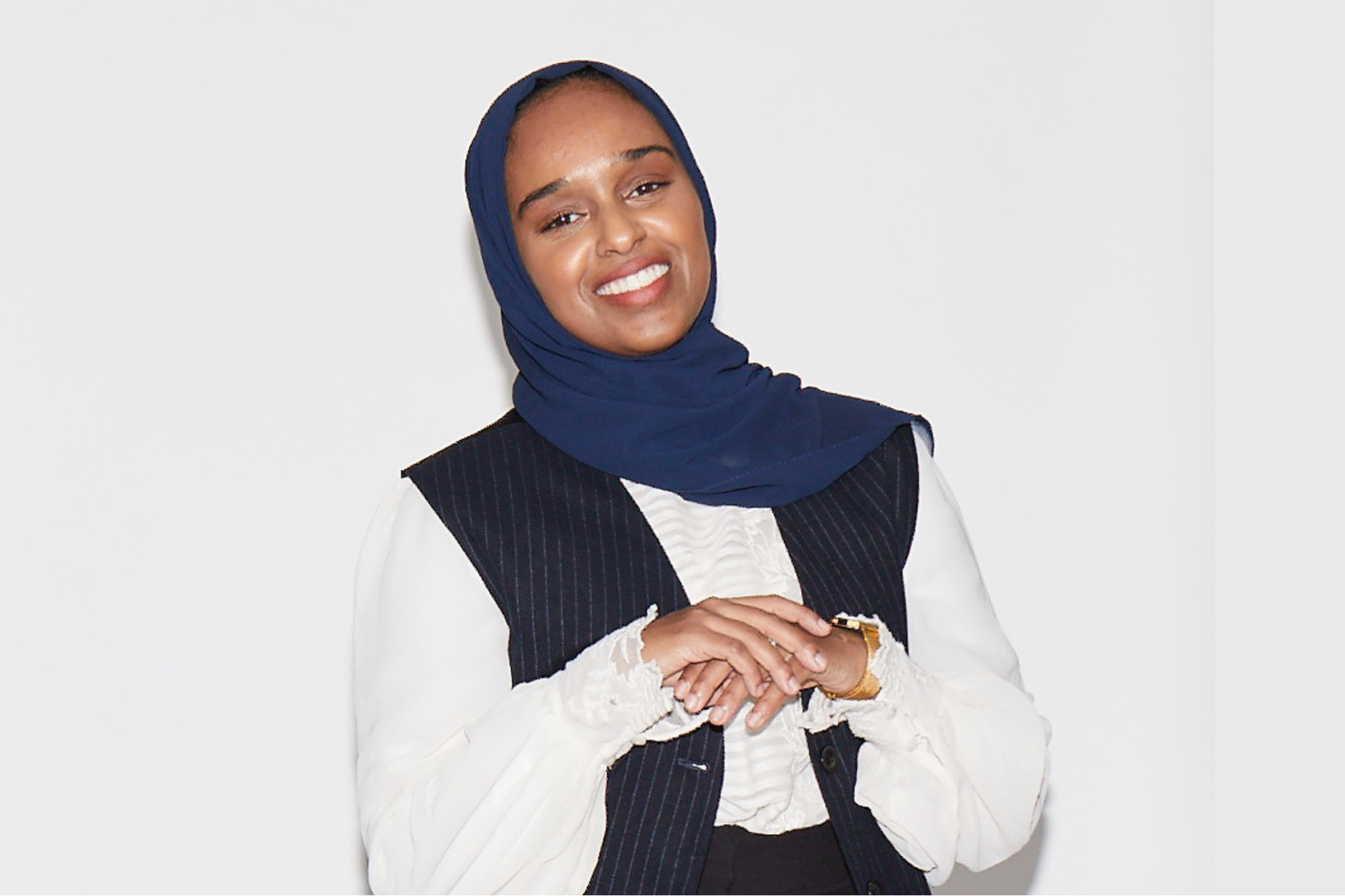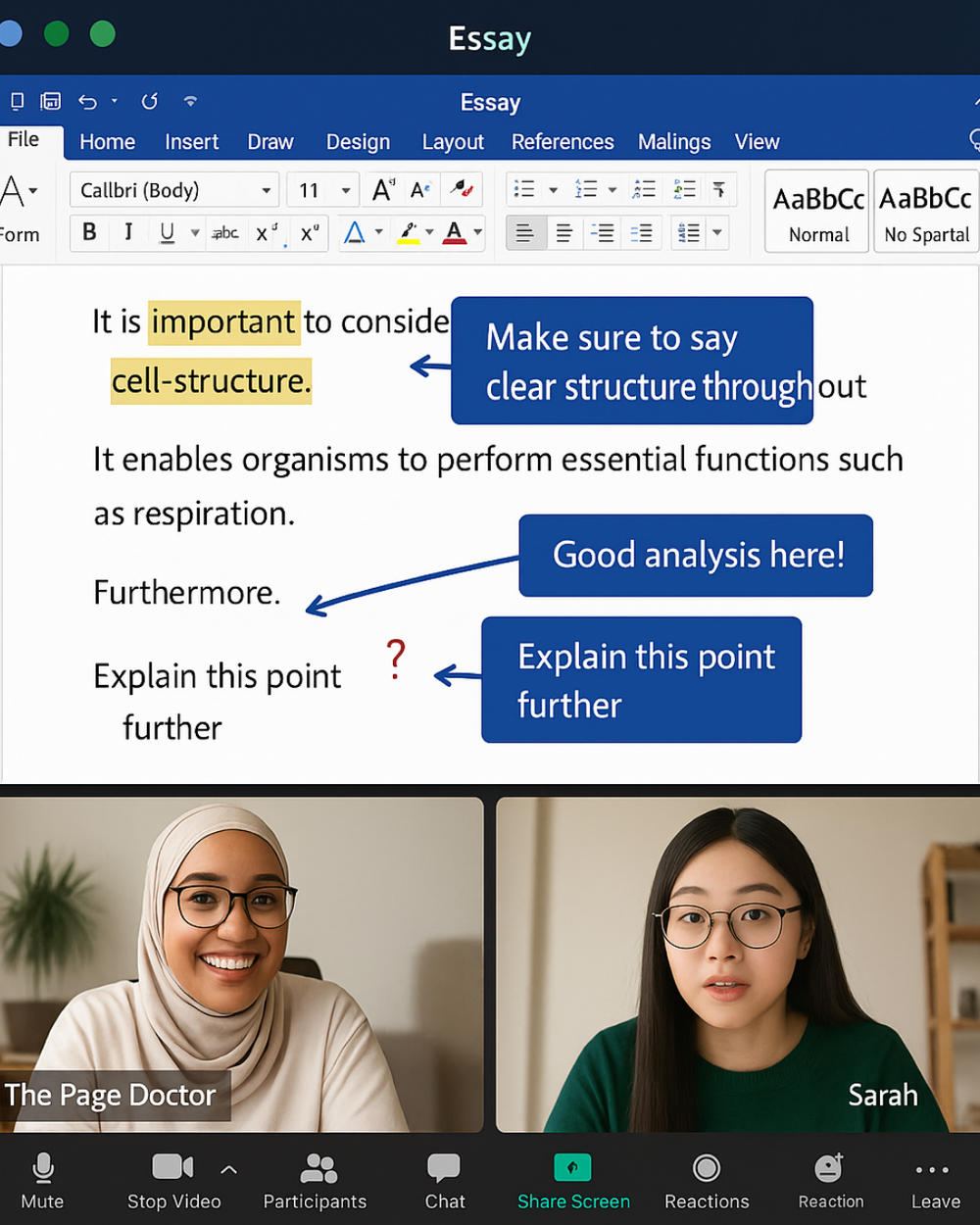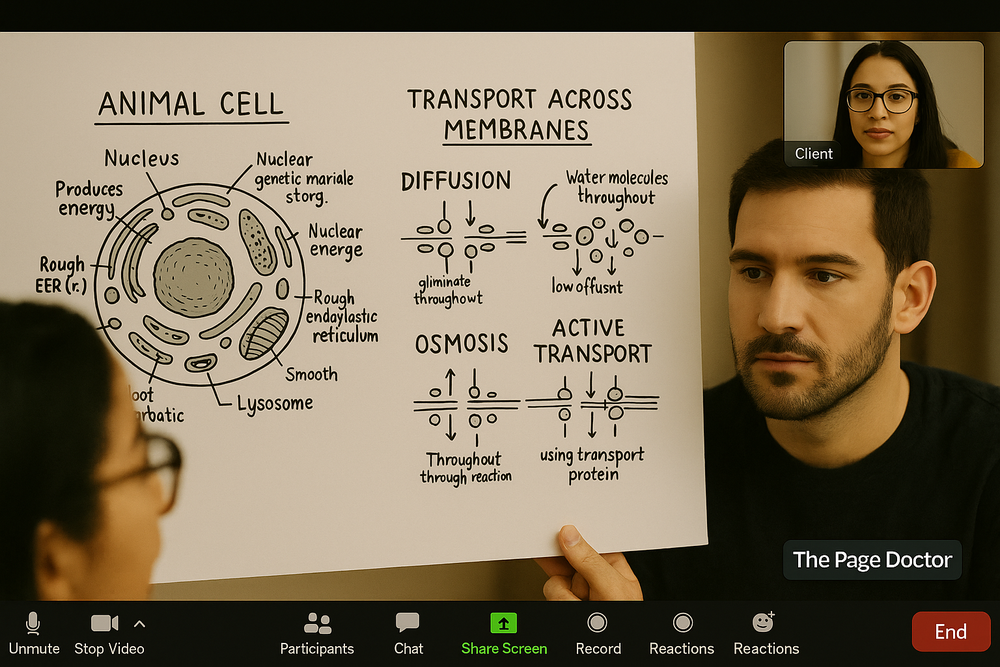Ethical AI for Academia: Dr. Amina Yonis' UK-Based "The Page Doctor" Expands into the UAE 'The Page Doctor' was built by Amina Dr. Yonis to help PhD students receive tailored guidance on their academic research through a model that combines human experts and ethical AI. The startup now makes its way into the UAE –the hub of AI innovation and edtech– with hopes to deepen its impact.
Opinions expressed by Entrepreneur contributors are their own.
You're reading Entrepreneur Middle East, an international franchise of Entrepreneur Media.

Dr. Amina Yonis was in the midst of her Doctor of Philosophy (PhD) degree in cancer research at University College London when an idea struck her: why not share the knowledge she was using to build her dissertation with other fellow students? "That's when I began documenting my journey on YouTube with weekly vlogs, offering a light-hearted look at the life of a researcher!" Dr. Yonis recalls. "On my YouTube channel, Dr Amina Dr. Yonis, I offer bite-sized, easily digestible content focused on the ethical use of AI, tailored specifically to university students. Today, with nearly 400,000 subscribers and over 20 million views, I have built a platform where students can access relevant and engaging information on artificial intelligence (AI) and academic writing in a format that speaks directly to their learning habits and preferences. But even back when I started it, the channel quickly gained millions of views and students started reaching out for academic support. As the demand grew, I founded The Page Doctor, assembling a team of PhD researchers to provide the academic help students needed."
Indeed, encouraged by the response her YouTube channel was able to garner, Dr. Yonis founded The Page Doctor in 2020. Primarily, the platform serves two interlinked goals: to bridge the gap between the expertise within the PhD community, and the need for high-quality academic support among students. "The Page Doctor does this by addressing four key academic gaps," notes Dr. Yonis. "The first is personalised comments on academic research and dissertations, wherein we offer detailed, tailored feedback from PhD experts, unlike the generic feedback students often receive from busy lecturers. The second is comprehensive support that goes beyond essays, where we assist with personal statements, resumes, cover letters, PhD viva prep and academic presentations. This support tends to be overlooked at university, leaving students having to find their support from external sources. Third, of course, is the ethical use of AI! The Page Doctor quickly embraced AI as a tool for enhancing academic development, offering resources like workshops and social media content. And finally, though building community by fostering a supportive, mentoring environment to help students feel less isolated and more confident."

While the platform's main target group is students aged 18 and above, from undergraduates to PhD candidates, it also serves as a tool for youngsters aspiring to get into university by helping them perfect their application forms. But what exactly does a typical academic paper submission on The Page Doctor entail? Dr. Yonis explains this by means of an example. "Say there's an undergraduate psychology student named Sarah, who while working on her dissertation feels overwhelmed by it and has concerns about argument clarity, referencing and structure," she begins. "Sarah then comes to The Page Doctor, and the first step is Submission and Matching. In this step, she uploads her draft, assignment brief and concerns, and we match her with a PhD researcher in psychology experienced in dissertations. Next comes the Expert Review stage, where the PhD researcher provides detailed feedback on academic rigor, structure, clarity, referencing and more. After that is the Feedback Delivery stage, wherein within 24 hours, Sarah receives the document with tracked changes and a summary report. She then books a one-on-one meeting after the feedback, to speak to the PhD consultant directly to answer any lingering questions. Here, we teach and advise students on how to use AI for brainstorming, writing citations or even finding literature. In the final stage, Action and Improvement, Sarah refines her dissertation using the feedback, improving her skills and enhancing her submission. This entire process is designed to be efficient, personalised and focused on empowering the student to understand why changes are suggested, fostering long-term academic development."

Dr. Yonis' explanation brings out one key aspect of The Page Doctor's approach towards AI- the technology doesn't replace any of the steps involved in the platform's various processes; rather it only accentuates and aids certain aspects that may otherwise have been time-consuming. This, Dr. Yonis says, has been a deliberate decision on her part. "Our platform is built on the foundation of human intelligence in the form of PhD researchers, whilst using education of AI to play a complementary role that teaches the student how to enhance efficiency during their academic studies," she says. "However, AI doesn't replace PhD researchers and we have not noticed a drop in students coming to us as a result of AI. This synergy is achieved by using AI as a tool to support and augment the human-led approach, rather than replace it. We're teaching students that yes, AI can do some things for you, but you still need to use your brain and adopt critical thinking. The result is a highly effective blend of efficiency and depth, offering students the best of both human and machine intelligence to enhance their academic journey."
With the UAE's continued efforts to create pioneering ideas in the AI space, Dr. Yonis felt it would be the perfect launchpad for the platform to grow further. Which is why, in 2024, the London-based founder made her way to Dubai. But the platform's move into the country holds added relevance in the face of a historic announcement: in May 2025 –in a decision supervised by H.H. Sheikh Mohammed bin Rashid Al Maktoum, Vice President and Prime Minister of the UAE and Ruler of Dubai– the Ministry of Education announced the integration of AI as an official subject in the public-school curriculum for kindergarten to Grade 12, starting from the 2025-2026 academic year. Unsurprisingly, it is something that has sparked excitement in Dr. Yonis. "This is a groundbreaking move focused on building foundational AI literacy from a young age," she says. "To support this shift, the UAE is investing in digital infrastructure and teacher training, with growing collaboration between the private sector, academia and schools. I have found that there has been a lot more interest on my YouTube channel and I have spoken at numerous universities and conferences, like Dubai AI week. For future generations, this initiative will create an AI-native workforce, giving students a competitive edge, compared to students from other countries. As AI handles routine tasks, human skills like creativity and collaboration will become even more essential. Teachers will evolve into mentors, guiding students through vast amounts of information. Ultimately, I think the UAE's approach is preparing its youth to not just use AI, but to shape its future, ensuring they are well-equipped for an AI-driven world."

As such, these recent developments have only strengthened Dr. Yonis' resolve to grow The Page Doctor within the UAE and the wider region. "I'm truly excited about what the future holds," she says. "Being in a country that is actively shaping the future of education provides incredible growth opportunities for us. Dubai is rapidly establishing itself as a global education hub, offering access to a diverse student population and a strategic location that enables us to expand regionally and globally. This access allows us to reach students not just within the UAE, but across the GCC and beyond. Moreover, the UAE's focus on youth empowerment resonates deeply with our mission to help students unlock their academic potential and develop the critical skills needed for the future. Dubai also attracts global talent, allowing us to offer specialised academic support across a wide range of disciplines, ensuring we meet the nuanced needs of students from diverse educational backgrounds. In essence, Dubai offers the perfect environment for The Page Doctor to flourish, with its forward-thinking policies, vibrant market, and innovative ecosystem. This is an exciting time for us and I'm optimistic about our future as we continue to expand globally from our base here in the UAE."
How does The Page Doctor help young students maintain their own creativity and research skills without becoming fully dependent on AI? Founder Amina Dr. Yonis answers!
Human expertise remains paramount "Our core principle is connecting students with PhD researchers. AI tools are useful but they lack nuanced understanding and experience that only humans can provide, including tailored advice, encouragement, and helping students develop their own voice and perspective."
AI as a tool, not a crutch "AI as a tool, like spell-check or grammar check, to be used responsibly. Our focus is teaching students how to use it effectively and ethically for tasks like brainstorming, refining language, finding research and summarising text, without relying on it to generate content."
Emphasis on process and skills development "Our feedback is not just about correcting a document blindly; it's about helping students understand the process of academic writing and research. Our goal is to empower students to become independent learners and researchers."
Educating on AI limitations and biases "We actively educate students on the limitations of AI, including its potential for generating inaccurate or biased information and the importance of human verification. The output from any AI tool should always be critically reviewed and validated by the student. In short, we blend human mentorship with AI tools. Our PhDs ensure that the student's own intellectual muscle is being developed and strengthened through the service."












